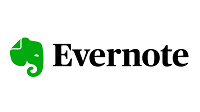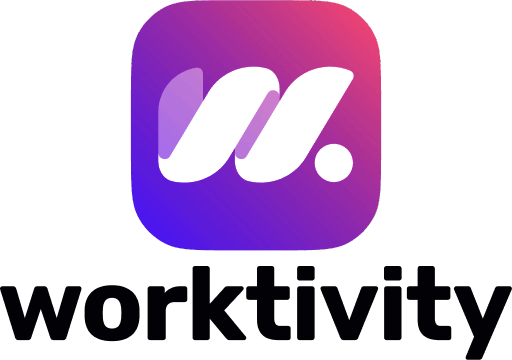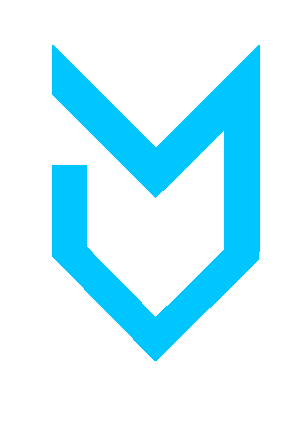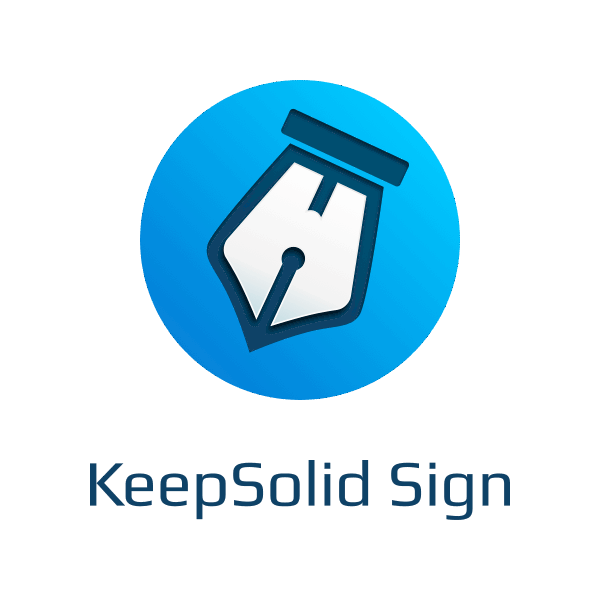Description

Evernote

Worktivity
Comprehensive Overview: Evernote vs Worktivity
Evernote Overview
a) Primary Functions and Target Markets
Primary Functions: Evernote is a cross-platform app designed for note-taking, organizing, task management, and archiving. Its primary functions include:
- Note-taking: Capture notes in various formats like text, audio, images, and sketches.
- Organization: Use notebooks, tags, and a powerful search function to categorize and find notes easily.
- Task Management: Includes features to create to-do lists, reminders, and manage tasks.
- Collaboration: Share notes and notebooks with others, and collaborate in real-time.
- Synchronization: Automatically syncs across various devices like smartphones, tablets, and computers.
Target Markets:
- Individuals: Students, freelancers, and professionals who need a robust tool for personal organization.
- Businesses: Teams and enterprises looking for collaboration tools that integrate with their workflow.
- Educational Institutions: Schools and universities that need tools for both teaching and administrative tasks.
b) Market Share and User Base
Evernote has enjoyed a significant presence in the productivity app market since its inception in 2008. It was among the pioneering apps that digitized note-taking and organization. While it doesn't share exact user numbers frequently, it reported over 225 million users worldwide in the mid-2010s. Its market share has faced competition from integrated productivity suites like Microsoft OneNote, Google Keep, and newer apps such as Notion.
- Market Share: Evernote's market share has declined over time due to increased competition.
- User Base: Loyal individuals and corporate users who rely on its comprehensive suite of features.
Worktivity Overview
a) Primary Functions and Target Markets
Primary Functions: Worktivity is a productivity tool aimed significantly more at work management and team collaboration. Its main features include:
- Project Management: Tools for planning, executing, and closing projects efficiently.
- Time Tracking: Inbuilt time-tracking functionalities to monitor productivity.
- Task Management: Powerful task creation, delegation, and tracking features.
- Collaboration: Enhance teamwork with communication tools, file sharing, and integrated feedback loops.
- Analytics: Providing insights and reports to better manage resources and team performance.
Target Markets:
- SMEs and Large Enterprises: Businesses looking for an all-in-one management solution.
- Remote Teams: Organizations with distributed teams needing cohesive communication and project management.
- Project Managers: Professionals responsible for ensuring project delivery within time and budget.
b) Market Share and User Base
Worktivity is relatively new compared to Evernote and similar well-established tools. As a lesser-known product, there may not be as much publicly available data on its market share and user base.
- Market Share: Typically smaller compared to giants in the productivity and project management spaces like Trello, Asana, or Monday.com.
- User Base: Emerging, with a focus on corporate environments seeking enhanced project and productivity management solutions.
c) Key Differentiating Factors
Evernote:
- Versatility in Note Formats: Supports multiple formats, making it highly versatile for capturing a wide range of information.
- Strong Search Capabilities: Notably powerful search functions that can even search text within images.
- Legacy and Integration: Being one of the first in the market, it has many third-party integrations and a robust existing infrastructure.
Worktivity:
- Integrated Project Management Features: Goes beyond personal productivity to include functionalities necessary for comprehensive project management.
- Team-focused Tools: Emphasis on enhancing teamwork and collaboration with dedicated tools for communication and coordination.
- In-depth Analytics: Offers analytic tools to provide insights on productivity and resource utilization, which are typically not the focus of apps like Evernote.
In summary, while Evernote excels in personal and professional note-taking and organization, Worktivity is more focused on team collaboration and project management. Users would choose between them based on whether they need a personal productivity tool or a comprehensive team-oriented solution.
Contact Info

Year founded :
2008
Not Available
Not Available
United States
Not Available

Year founded :
Not Available
Not Available
Not Available
Not Available
Not Available
Feature Similarity Breakdown: Evernote, Worktivity
To provide a feature similarity breakdown for Evernote and Worktivity, I'll address the core features, user interface comparisons, and unique features of each product.
a) Core Features in Common
-
Note Taking and Document Management:
- Both Evernote and Worktivity offer robust note-taking capabilities which allow users to create, edit, and organize notes and documents.
-
Task Management:
- Both platforms have integrated task management features, allowing users to create to-do lists and set reminders to manage their workflow effectively.
-
Collaboration Tools:
- Evernote and Worktivity provide collaboration features, enabling users to share notes and documents with team members and work together on projects.
-
Cloud Synchronization:
- Both services offer cloud syncing, ensuring that users can access their notes and tasks from multiple devices, including smartphones, tablets, and computers.
-
Search Functionalities:
- Advanced search options are available in both platforms, allowing users to quickly find notes or documents by keywords, tags, or other criteria.
b) User Interface Comparison
-
Evernote:
- Evernote is known for its clean and straightforward interface. It features a side navigation bar for easy access to notes, notebooks, tags, and shortcuts. Its UI emphasizes simplicity and ease of use, with a focus on productivity and minimal distractions.
-
Worktivity:
- Worktivity often emphasizes a more dynamic and customizable UI. It might include dashboards that can be tailored to user preferences, offering widgets for upcoming tasks, calendar events, and collaborative projects. Worktivity's interface may provide more integrated views for overall workflow management.
c) Unique Features
-
Evernote:
- Web Clipper: A unique tool that allows users to clip and save web pages, articles, PDF documents, and images directly into their Evernote account.
- OCR (Optical Character Recognition): Evernote can convert handwritten notes and images into editable and searchable text, which is beneficial for users dealing with physical documents.
-
Worktivity:
- Time Tracking and Productivity Analytics: Worktivity may offer features geared towards time management and productivity insights, helping users track their performance and optimize their daily routines.
- Integrated Communication Tools: Some versions of Worktivity might include built-in messaging or video conferencing tools to facilitate real-time communication within the platform.
These feature breakdowns highlight common functionalities and distinct offerings. Evaluating these elements can help users decide which tool aligns best with their personal or organizational needs.
Features

Search and Retrieval
Capture and Import
Note Organization
Collaboration
Cross-Platform Access

Project Management
Time Management
Reporting and Analytics
Team Collaboration
Best Fit Use Cases: Evernote, Worktivity
Evernote and Worktivity are productivity and organizational tools but cater to different needs and use cases. Here is an analysis of their best fit use cases, target industries, and company sizes:
a) Evernote
Evernote is a versatile note-taking and organizational tool suitable for individuals and teams. Its best fit use cases include:
-
Types of Businesses or Projects:
- Creative Professionals: Designers, writers, and artists who need a centralized location for notes, ideas, sketches, and resource materials.
- Small to Medium Businesses (SMBs): Organizations that require collaboration and sharing of documents but don't need extensive project management features.
- Education: Teachers and students use Evernote for organizing class materials, research, and collaborative projects.
- Freelancers and Entrepreneurs: Individuals managing multiple clients or projects who need to keep track of various documents, notes, and deadlines.
-
Features Beneficial for These Use Cases:
- Powerful search functionalities, including document and handwriting recognition.
- Integration capabilities with other tools (e.g., Google Drive, Slack).
- Robust organizational features like notebooks, tags, and reminders.
b) Worktivity
Worktivity is typically used for project management and team collaboration, making it suitable for different scenarios:
-
Scenarios for Preferred Use:
- Project-driven Environments: Teams needing comprehensive project management features, including task tracking, time management, and workload balancing.
- Enterprises with Distributed Teams: Companies that require real-time collaboration and communication among team members across different locations.
- Industries with Rigorous Compliance Needs: Healthcare, finance, or any sector needing meticulous documentation and task tracking for legal or compliance reasons.
- Agile Development Teams: Software development and IT firms using agile methodologies, needing sprint planning, and tracking features.
-
Features Beneficial for These Scenarios:
- Detailed task management with timelines, dependencies, and resource allocation.
- Built-in communication tools and integrations with messaging platforms.
- Advanced reporting and analytics features to track project progress and team performance.
d) Industry Verticals and Company Sizes
-
Evernote:
- Verticals: Education, creative industries, marketing and communications, professional services.
- Company Size: Primarily small to medium-sized businesses and individuals; useful for large enterprises but typically as a supplementary tool rather than a core system.
-
Worktivity:
- Verticals: IT and software, healthcare, financial services, manufacturing, and large-scale project-driven industries.
- Company Size: Suitable for medium to large enterprises, particularly those with multiple teams and complex project requirements.
In summary, Evernote excels as a flexible and easy-to-use tool for note-taking and basic organizational needs, ideal for smaller teams or individuals in creative and educational sectors. On the other hand, Worktivity is better suited for larger teams and organizations requiring structured project management and robust collaboration features. Each tool caters to different workflow and industry needs, emphasizing their complementary rather than competitive relationship.
Pricing

Pricing Not Available

Pricing Not Available
Metrics History
Metrics History
Comparing undefined across companies
Conclusion & Final Verdict: Evernote vs Worktivity
To determine the best overall value between Evernote and Worktivity, it's important to consider various factors such as features, pricing, user experience, integration capabilities, and specific user needs. Here's a breakdown of each product's pros and cons and recommendations for potential users deciding between the two.
a) Conclusion: Best Overall Value
Evernote offers the best overall value for users seeking a comprehensive and well-established note-taking application with advanced functionalities. Its strong feature set, including powerful search capabilities, cross-platform availability, and a robust ecosystem of integrations, makes it an excellent choice for personal organization and project management.
b) Pros and Cons
Evernote:
Pros:
- Feature-rich: Extensive note-taking features, including multimedia note support, web clipping, and document scanning.
- Cross-platform: Available on major operating systems (Windows, macOS, iOS, Android) with seamless sync capabilities.
- Integrations: Compatible with a wide range of third-party apps and services.
- Powerful Search: Advanced search features, including handwriting recognition and tagging, for efficient information retrieval.
Cons:
- Cost: Premium features come with a subscription fee, which may not be cost-effective for all users.
- Complexity: The extensive feature set can be overwhelming for beginners or users with simple needs.
- Performance Issues: Some users report lag, particularly in the desktop versions when handling large notebooks.
Worktivity:
Pros:
- Simplicity: User-friendly interface that suits individuals or teams looking for straightforward task management and collaboration.
- Collaboration: Focuses on teamwork with features that facilitate project collaboration.
- Cost-effective: Often presents a lower cost option, potentially with free tiers that provide basic functionality.
Cons:
- Limited Features: Compared to Evernote, Worktivity may lack some advanced functionalities that power users require.
- Integration Limitations: May have fewer integrations with third-party apps compared to Evernote.
c) Recommendations for Users
-
Choose Evernote if:
- You require a comprehensive and sophisticated note-taking solution.
- You need advanced features like deep search functionalities and the ability to handle a wide variety of content types.
- You're looking for a mature ecosystem with robust third-party integrations.
-
Choose Worktivity if:
- You prioritize ease of use and simplicity over advanced functionalities.
- You need a basic, affordable tool for managing tasks and collaborating with a small team.
- You are looking for a cost-effective solution, especially if you require only the basic features.
Ultimately, users should identify their main priorities, such as whether they value comprehensive features over simplicity or need extensive integration options. Both Evernote and Worktivity serve different purposes, and the best choice greatly depends on individual needs and workstyles.
Add to compare
Add similar companies



